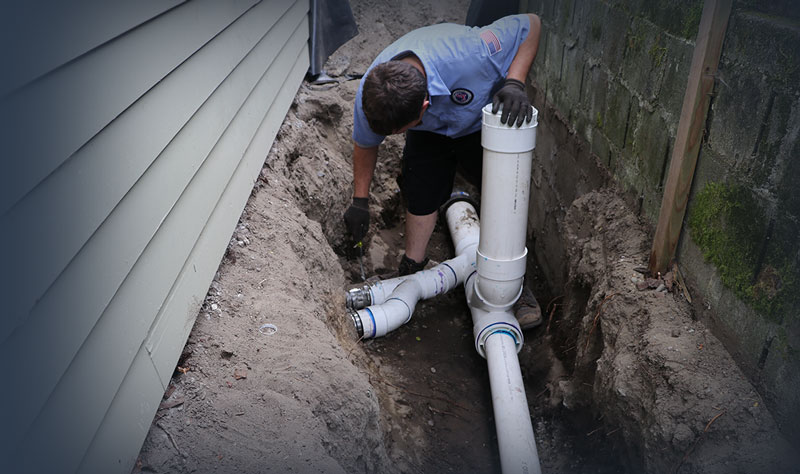Four Important Sewer Facts You Should Know
Sewer lines are truly a crucial component of your plumbing system, but if they are not properly maintained, they can become a cause of trouble. If you’re worried about your sewer line, here are four facts to help you understand what’s really going on and what you should do about it.

1. What Can Cause A Sewer Line To Back Up?
The most common reason for a sewer line backup is tree roots in the ground outside your home. If they grow into the sewer pipe, they can cause major damage to your home’s pipes and drains. You can prevent this by keeping trees away from the house and making sure they’re properly pruned.
Another common cause of sewer line backups is grease buildup in the kitchen sink, drain pipes, or drains in general. This occurs because grease doesn’t dissolve in water, so it builds up in pipes over time and eventually blocks them completely. To help prevent this from happening, never pour grease down the drain; instead, pour it into a container and place it outside with your garbage cans each week until there’s no more grease left inside it.
2.How Can You Tell If Your House Has A Clogged Sewer Line?
One of the first signs that something is wrong with your sewer line is if you notice sewage backing up into your toilet bowl or bathtub. This happens when water begins to back up into the pipes because they are blocked by debris such as food particles, dirt, and other things that should not be flushed down the toilet, such as feminine hygiene products. If this happens, call a plumber immediately because it could mean that there are larger issues than just a blockage in your drain lines.
3.How to Properly Maintain Your Sewer Line?
The first step in keeping your sewer line in good shape is to avoid putting anything into it that shouldn’t be there. This includes everything from grease and oil to rags and paper towels. These items can become lodged in your sewer pipes and cause serious damage over time.
You should also avoid dumping any chemicals down the drain, as these can damage the lining of your pipes and cause them to corrode over time. The same goes for bleach, which can eat away at the inside of your pipes, causing them to crack or break open under pressure.
4.Know When to Replace a Sewer Line
The most common reason for replacing a sewer line is when it becomes clogged with roots or other debris. This can actually cause the pipe to break, which can cause flooding in your basement or other areas within your home. It’s important to have your sewer lines regularly inspected to ensure they aren’t clogged and that they aren’t broken. Replacing your sewer line can save you money in the long run because it will prevent future problems from happening. If you’re still not sure if you need to replace your sewer line, it may be time to call a professional.
If you have noticed a problem with your sewer or have questions about a sewer line, contact our plumbers at New Flow Plumbing. We proudly provide quality work at affordable prices with open communication to all of our customers. Reach out to us today!





